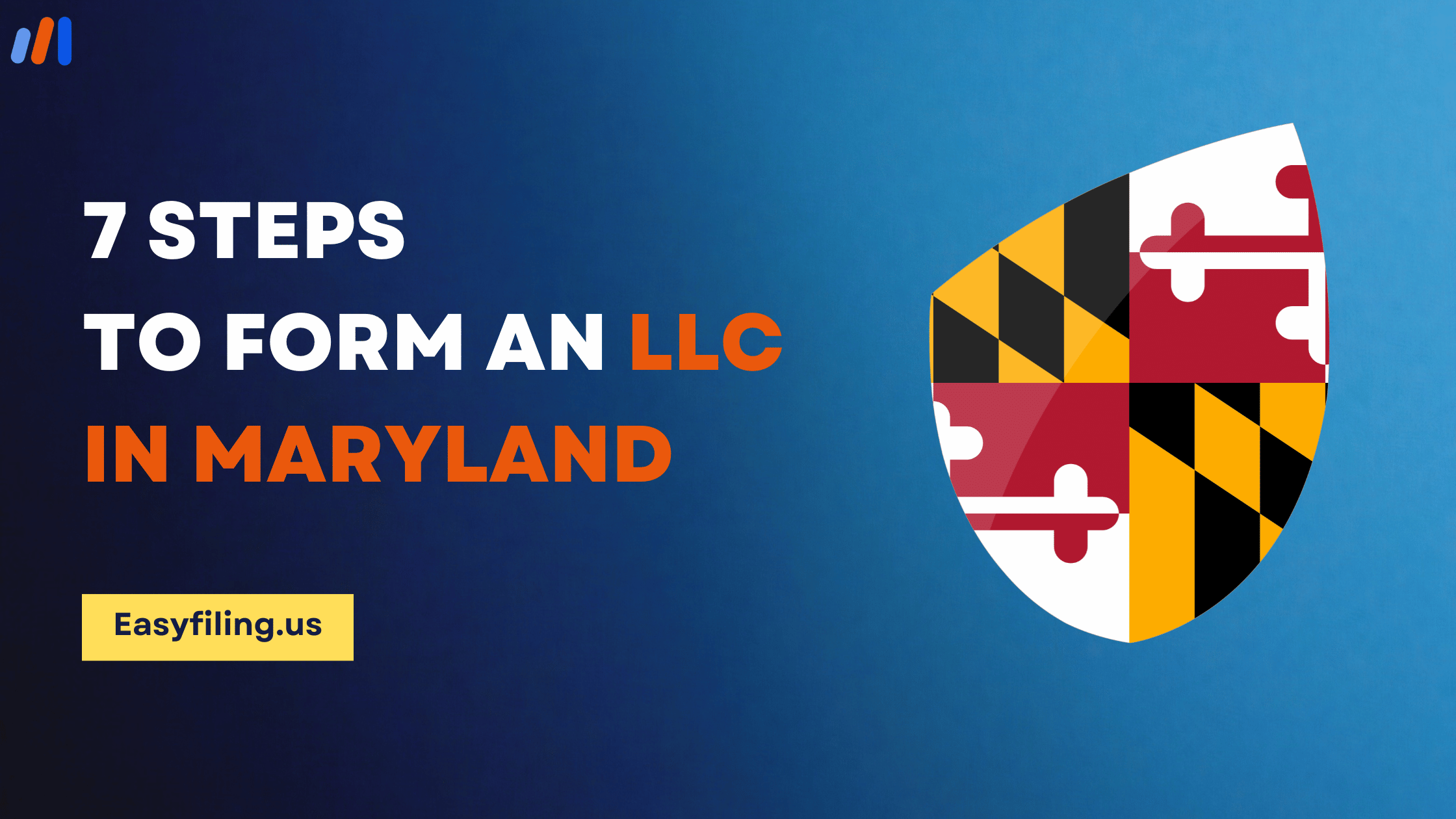Creating a business in America can be difficult, especially when you have to deal with legal structures and laws. When setting up your business as a non-resident, you may need clarification on what type of company to set up and how to do it. One common choice for many non-US about which entity best suits their needs is the limited liability corporation (LLC).
This guide will give you an in-depth idea of what an LLC is, establishing an LLC for non-US residents, the documents required for the registration process, and the benefits and tax implications for non-resident LLCs, LLCs, among other important issues. After going through this article, you should determine whether LLC formation is your best bet, considering your business.
What is an LLC?
A flexibly structured enterprise known as a Limited Liability Company (LLC) protects against limited liability for its members or owners. By definition, it ensures that their assets are normally protected from liabilities and debts incurred by the business. Besides that, LLCs offer flexibility in terms of management structure, taxation mechanisms, and ownership arrangements, respectively.
LLC allows its proprietors, who are referred to as members, to have intermediate responsibility; hence; their funds are rarely exposed to trade debts and obligations. This kind of organization offers control over management, including sharing profits; thus; it looks very appealing, especially if we talk about small or medium companies.
The main advantage is pass-through taxation, where there is no double taxation like corporations, where the company’s earnings get taxed at the corporate level before being distributed as dividends, which are again taxed at an individual rate, while LLC distributes its losses and income unto member’s tax returns. Furthermore, it simplifies taxes, making tax savings possible.
Can a Non-Resident Start an LLC?
Non-U.S. citizens can register Limited Liability Companies (LLCs) in the USA. Any person, irrespective of his/her citizenship or residence status, can create an LLC, whether resident or non-resident since the US is known to have a friendly business climate. Particularly, this is good news for foreign entrepreneurs wishing to expand their business operations into the American market, as non-residents find it beneficial due to legal protections, credibility, and tax advantages of conducting their business activity via LLC structure in the United States.
The process of starting an LLC for a nonresident requires specific actions and considerations. The registration process is different depending on the status of the company, including whether non-residents are willing to register their Limited Liability Company (LLC).
Additionally, choosing the designated state for the company involves appointing a registered agent with a physical address where all documentation concerning the company’s undertakings can be received. Apart from that, you will need an employer identification number (EIN) from the Internal Revenue Service (IRS) for taxation purposes, as well as some guiding principles, that are crucial in the establishment and running of any business by non-residents under limited liability reforms within the USA.
How do I set up an LLC for non-US residents?
Step 1: Choose Your State
A decision on where your Limited Liability Company will be established should only be made after carefully considering different states’ regulations and tax implications related to formation fees, among other factors that might affect its success and continuity.
Step 2: Appointing a Registered Agent
This means that one must have someone who will receive all legal documents on behalf of his company in that given state, which means such an individual has to have a physical address in that particular place.
Step 3: Submit Articles of Organization
Also known as a Certificate of Formation or a Certificate of Organization, this document should be filed with the Secretary of State office situated in the respective state, containing basic information about your LLC, such as its name, address, and names of its members, among other necessary details.
Step 4: Obtain Employer Identification Number (EIN)
An EIN is needed to pay taxes, open a bank account, and hire employees. Non-residents may obtain an EIN from the Internal Revenue Service by filing Form SS-4 online or mailing or faxing it using the same form.
Step 5: Comply with Ongoing Requirements
These could be annual reports or fees associated with running a limited liability company within each state. This must be adhered to for the LLC to remain in good standing.
The best states for forming LLCs in the United States
Delaware
Because of its laws that support business and well-established legal infrastructure, Delaware often emerges as one of the best states where companies can file for registration as LLCs. The flexibility that comes with setting up your LLC here is remarkable, as are its asset protection structures. Members and managers are not required to be listed on the Articles of Organization, which provides more privacy. Moreover, there is a specialized Court of Chancery dedicated only to corporate matters, where business disputes are efficiently resolved by professionals.
The other significant advantage of an LLC formed in Delaware is its tax benefits. This means that non-residents whose businesses operate solely outside Delaware will not pay any state income tax there. Besides, the state’s filing fees and franchise taxes are relatively low compared to many other jurisdictions globally, making it more appealing to entrepreneurs who want to minimize their initial investment while benefiting from a robust legal system.
Also read, How to Start an LLC in Delaware | Step-by-Step Guide>>
Nevada
Nevada, like many other states in America, is a haven for non-resident entrepreneurs who want privacy and to pay lower taxes. The law of Nevada does not require disclosure of members or managers in public records, thus ensuring high confidentiality. Besides this, the state also does not charge any income tax or franchise tax on LLCs, which makes it more favorable for businesses operating outside of the state of Nevada. This unique combination of business-friendly regulation and no state-level taxation makes Nevada attractive to many entrepreneurs.
The state’s legal protections for business owners are robust, with laws that offer strong asset protection and limit the personal liability of LLC members. Furthermore, the process involved in formation is fast and straightforward. All these factors contribute to creating a favorable tax environment that has made it among the most popular places outside the US where non-residents can establish an LLC.
Wyoming
Wyoming is a favorite state for LLC formation due to the low fees, good asset protection laws, and no state income tax. Wyoming offers awesome privacy advantages since it doesn’t need LLC members’ names to be revealed. It even provides for lifetime proxies, thus allowing owners to assign other people to act on their behalf, thus adding more privacy.
The business-friendly environment in Wyoming comes with low annual fees and minimal reporting obligations. The legal framework in the state also protects businesses from liabilities. Consequently, these factors attract non-US citizens who are interested in forming an LLC in America.
Also read, How to Start an LLC in Wyoming | Step-by-Step Guide>>
Florida
Florida is a popular choice for those wanting to form an LLC because of its big market and business-friendly environment. This is interesting for LLC owners who do not want to pay personal income tax because Florida does not have any of this. On top of that, Florida has clear-cut business rules with relatively short and uncomplicated processes for registering as a limited liability company (LLC).
Its diverse economy and high population contribute to numerous opportunities, mainly within the tourism, real estate, and international trade sectors. Moreover, this area serves as a gateway between Latin America, Caribbean countries, and the Northern American continent, thereby giving certain benefits to global entrepreneurs.
Texas
Texas is one of the most frequently chosen states for registering an LLC, primarily due to its booming economy, favorable attitude towards businesses, and zero percent personal taxes charged by the Austin or Dallas governments. The place has a large market, and various industries can find it attractive for their destination points. Filing fees are also comparatively cheap; keeping ongoing compliance requirements at their minimum level.
The central location of the state, supported by strong infrastructure, makes it ideal for companies operating throughout the US territory. Likewise, Texas can boast of providing the maximum possible extent of protection against liability with regard to its legal framework concerning enterprises created under this form of organization, such as limited liability companies (LLCs). All these reasons make Texas one of the top choices for anyone establishing an LLC who is not a citizen of America.
Advantages of forming a US LLC for non-residents
Limited Liability Protection
First and foremost among them is the limited liability protection that such a corporate structure accords its owners. Generally speaking, members have no personal responsibility for debts or liabilities that come about as a result of transactions undertaken by the company. This means that if something goes wrong with their venture or they get sued, their properties are safe from being taken away from them. Without this insurance cover, individuals may be reluctant to risk investing money in companies because they fear losing everything if things go wrong.
Additionally, besides protecting you against personal liability, an LLC format equally allows flexible management, given that either one chooses self-management or delegates authority to manage at their discretion. Non-resident foreign-based investors may prefer US-based executive directors to focus on making strategic decisions while an operational side of the business is managed locally. Thus, they may find it helpful to have local managers perform day-to-day administrative duties.
Tax Flexibility
Thus, the American system offers a wide range of opportunities connected with taxes for nonresidents opting to establish a venture on this territory. Being a pass-through entity, LLC does not pay income taxes itself; instead, its owners pay according to their returns. This means they only pay tax once since the profit is taxed in their capacity, thus avoiding double taxation.
Additionally, US non-residents may enjoy tax benefits under any treaties that exist between their country of origin and the USA. Also, LLCs can opt to be taxed as corporations, partnerships, or sole proprietorships, depending on the desires of their members. These options allow foreigners to minimize their overall tax liabilities when they set up business in America.
What are the taxes for a non-resident owner of a US LLC?
Federal Income Tax
For instance, nonresident foreign citizens having ownership interests in US LLCs must report and possibly remit federal income taxes on all earnings associated with conducting business within our borders. The rates at which such obligation accrues depend on the amount of money earned by LLC and other factors relevant to non-residents. It should be noted that the US has negotiated bilateral treaties with many countries that could impact the exposure of nonresident foreign owners to tax obligations, thereby lowering the effective cost of doing business with them generally.
Apart from federal income tax, non-residents with shares in the company may also be subject to withholding on any distributions of income from the LLC. The withholding rate generally stands at 30% but can be reduced by a tax treaty between the U.S. and the home country of a non-resident. Non-resident owners need to comprehend their tax duties and make use of relevant double taxation agreements in their best interest when it comes to paying taxes.
State Taxes
In addition to federal taxes, non-resident owners of a US LLC may also be subject to state taxes, depending on where the LLC is formed and operates. Some impose income tax on the business or its members, whereas others may have franchise levies or other business-focused taxes. This makes such states as Texas and Florida more attractive options for avoiding state income tax liability among non-residents.
Non-resident LLC owners must understand the specific tax requirements of the state in which their company is registered and does business. Noncompliance with state tax obligations may lead to penalties or loss of good standing for such an organization. Thus, it will be a good idea to consult a qualified tax specialist who has expertise in both federal and state tax legislation to ensure effective taxation planning and adherence.
How to Open a Bank Account for My LLC (Non-US Residents)
Step 1: Choose a Bank
Find a bank that has offerings suitable for international customers and understands the needs of foreign LLC owners. Several US banks have special charges for opening non-resident business accounts. Review banks that operate with foreign companies in particular and examine their services, fees, and requirements.
Step 2: Gather Required Documents
Preparation of necessary papers to open a corporate bank account. Usually, this includes Articles of Organization, Operating Agreement for LLC, and EIN, along with identification documents of the company’s proprietors/managers. Some banks may also require proof of a US address, which can be obtained through a registered agent or virtual office service.
Step 3: Apply for the Account
Either visit the bank physically or apply for it online, depending on what suits you best. For example, at some banks, non-residents will have to come to any branch located in the USA to open an account, while others give a chance to distant applicants. Make sure that all required documents are submitted and all conditions provided by the bank are fulfilled.
Step 4: Fund the Account
After your account has been approved, you will have to finance it using an initial deposit. However, each financial institution might have its demands, so consult on this matter, especially when considering the different requirements concerning the minimal amounts associated with each specific entity. Depending on your preferences, you can transfer money from abroad into your new American business account.
Step 5: Stick to the Rules
After opening the account, you have to make sure that your compliance with the bank’s requirements and US laws remains intact. This involves keeping up-to-date LLC documents, filing necessary tax returns, and observing any reporting requirements. Regularly assess your accounts and banking services to verify whether they still serve your business needs.
Click here to register your bank account.
Conclusion
Forming a US limited liability company provides various benefits, including safeguarding personal assets against any claims made by creditors, flexible taxation policies, and getting into American markets, among other advantages. However, despite all these difficulties and the numerous extra steps involved in setting up an enterprise in the USA, it is possible to establish an LLC for non-US residents. For this to happen, you need to choose the right state, meet all legal and tax requirements, and familiarize yourself with specific regulations about foreigners.
Non-residents, therefore, can grow their businesses, increase their reputation, and safeguard their goods by taking advantage of the benefits provided by a US-based limited liability company. It is always better that one seeks advice from legal or even taxation consultants who are experienced in forming a US limited liability company while outside America.
Frequently Asked Questions (FAQs)
Should non-US residents form LLCs in any state?
Yes, but some states may have certain advantages over others.
Do non-US residents require an American address to create an LLC?
No, though they must possess a registered agent whose physical address should be within the same jurisdiction.
Do foreign nationals pay taxes on all income earned in the USA?
Foreign nationals are taxable only on income that has been effectively connected with a US trade or business following relevant treaty provisions.
How long does it take to create an LLC in America?
Depending on the state procedures involved, this could take as little as a few days up to several weeks.
File Your LLC Today
25$ off with a coupon
Lock in EasyFiling's transparent rates and get lifetime compliance support at no extra cost.
Get Started Now







